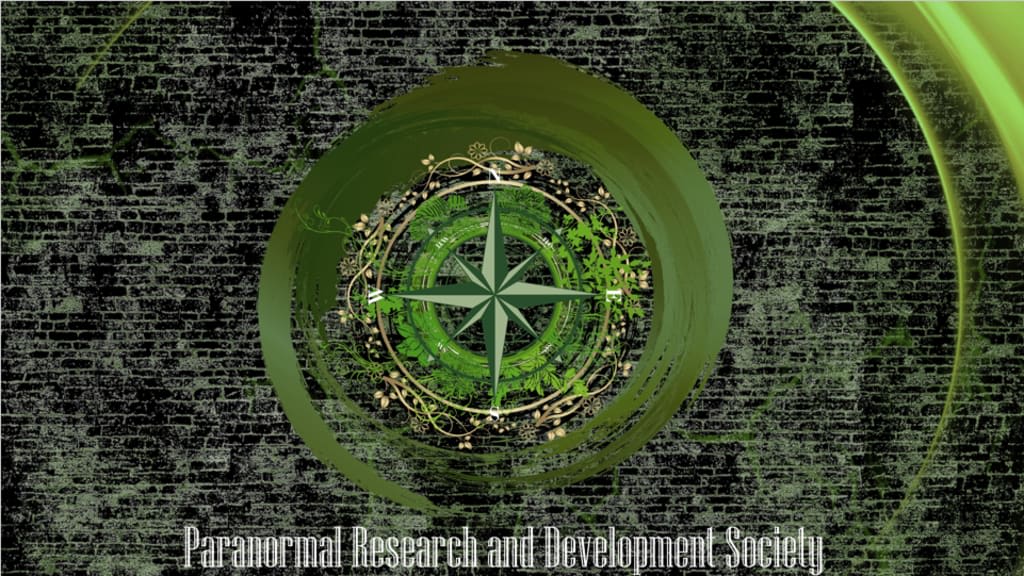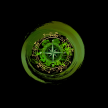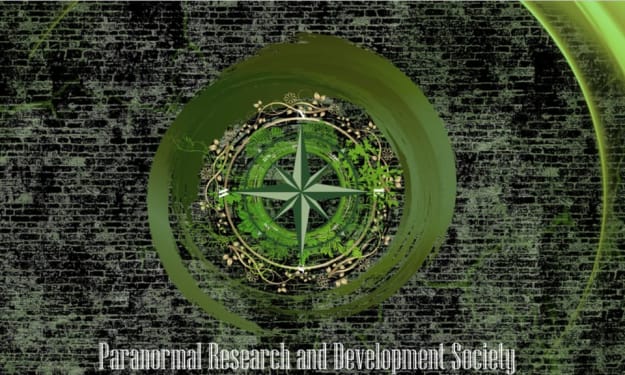
Belief.
Is there any more powerful force in the world than the power of belief? Nations encourage it in their citizens. Spirituality, religion and faith thrive on it. Hope depends on it.
...so what is belief, and why is it so important?
According to the National Library of Medicine, the ventromedial prefrontal cortex is responsible for this ability; it is also what allows us to bind together the complex networks that distinguish how we process memory, emotion, make decisions, how we perceive ourselves, and our social cognition in general (picking up on social queues or reading the room for example).
People are, as a rule, rather than an exception to that rule, are reactionary.
Even trained professionals who spends hours, weeks, months and years learning how to be proactive rather than reactive, still have their moments when pushed too far.
This topic alone could open pages long essays on proactive versus reactive, action versus inaction, jumping to conclusions versus arriving to conclusions, escalation and de-escalation; these topics alone are at minimum an eight hour course, and can be more than forty hours of training in a class room environment.
These are however, peripheral topics to belief, though they are directly tied to it. As a rule, when belief is challenged, it elicits a reaction. Sometimes the reaction is immediate, impassioned and triggers an anger response.
Why?
Belief is personal. The thoughts, ideas, life experiences and attachments to beliefs are deeply personal, and sometimes even a part of a person's identity; it can be how they live their lives and why they live their lives in that way. It can be education, science, politics, religion, social issues, or obscure and more esoteric beliefs.
It is noted in the previous article that breaking down belief, not breaking belief itself, is useful in understanding someone else's point of view. The problem we face today (in terms of a contemporary world with contemporary social issues and contemporary rationalizing) is that there is a hesitance (if not an outright refusal) to challenge any belief or belief system out of a fear of being vilified.
The notion that it is harmless practice, and that people may be allowed to believe whatever they want to believe so long as it hurts no one else is one of the largest and most harmful logic fallacies, and an ideological misnomer in terms of forward thinking or progression as a practice. The practice of willful ignorance as a belief system in the face of fact is a continuous drain on the ever diminishing credibility of paranormal investigation.
How does the paranormal investigation community reconcile conflicting beliefs between the ever scrutinizing eyes of science and the convictions of an individual or group of people's chosen beliefs?
Even in the face of overwhelming evidence, and insurmountable study to suggest contrary, there are still those who will look at something they have seen and declare it (without study, without warrant, without explanation) as something that is a paranormal phenomena or alternatively, something that is entirely without it. They argue from a position of expertise due to their belief system, and when challenged, that belief compels them to act against that challenge in the same way the body acts out against a virus.
The abject rejection of new ideas, or even erasing old ideas to create new ideas is a reality of the paranormal research field. People lean back on anecdotal evidence, either theirs or someone they know, or the proverbial friend of a friend of a friend story. They believe it at face value because it supports what they already believe, and reinforces their cognitive bias (see cognitive immunization).
Paranormal investigation is a comfortable "field", where there are dogmatic conclusions available to anyone who has a question and where answers are too easily, too readily accepted. It is almost a cult-like mentality, where the occult, the esoteric and belief all meet in a crossroads to support any theological, theoretical, hypothetical evidence that may arise.
This level of comfort is a sign of community complacency. It is easier to shout something down, or hail it as evidence, than it is to do the actual research. Research is not using occult instruments to divine the name and purpose of an AE, nor is it utilizing an EMF meter / Gauss meter, EVP, Ghost Box, or any other tech devices or popular smartphone application, to declare any hypothesis or phenomena as fact; this complacency urges stagnation. The level of comfort the paranormal community has with its stagnation is astounding... and disturbing... as no advances have been made. or attempted.
There are even small societies that make "ghost hunting equipment", made by ghost hunters for ghost hunters, and all of that equipment is an amalgamation of the devices most paranormal investigators already use, rolled into a single device, and packaged as legitimate investigation equipment. Imagine the excitement of people who are given tools to reinforce their already strong beliefs. Imagine the outcry were they given tools that challenged their beliefs, and the emotional break that would follow in the advent of cognitive dissonance.
There is nothing wrong with belief, and if belief itself can be shattered, then there was never much faith in that belief to begin with... but given the right tools, and standing on the precipice of objective observation, how much more could be accomplished if investigators only allowed the room for growth? To put away their occult instruments, and use their technology for its intended purpose. Instead of attempting to measure an alleged haunting, measure the circumstances that surround an alleged AE, and measure, record and compare the data between one location and the next, while measuring against data in areas not reputed or reported as having any paranormal activity.
The findings in a larger scope, in a longer game, and with a broader outlook may provide better answers, but answers may require a level of discomfort that removes complacency and demands action. Is it possible to break down belief, without breaking belief, and if so, can it be done objectively to produce actual results, whether than those results which almost exclusively agree with the investigator's desired result?
The actual experiment is the paranormal community.
The question is: can the paranormal community accomplish their goals of providing evidence of a paranormal / metaphysical nature; can objective observation reconcile with individual personal beliefs to provide advancements for the paranormal community?
The hypothesis is:
In regard to Paranormal Investigation as it relates to the investigation of an afterlife and afterlife entities remains a pseudoscience, and so is an ongoing practice in futility. Paranormal, and subsequently The Paranormal are defined respectively as something not scientifically explainable, and strange events, abilities, etc., that cannot be explained by what is known about nature and the world.
As a result of these definitions, Paranormal and The Paranormal are concurrently defined as a pseudoscience, which is in turn is a system of theories, assumptions, and methods erroneously regarded as scientific.
It is a fact, that at the current rate of scientific applications in paranormal, 'the paranormal' and 'paranormal investigation' are therefore non-existent, and may further demonstrate that Paranormal Investigation cannot move forward or advance in any meaningful way so long as the majority investigators practicing in the 'field' continue encouraging complacency through inaction and while utilizing belief as fact in a field that has no facts built around its belief system.
The presumptive conclusion is that the field of the Paranormal and Paranormal Investigation has been to date, and is at this time, an ineffectual field of study constructed exclusively and solely around an amalgamation of interwoven spiritualistic, religious and faith beliefs, all which when challenged, topple the entirety of this field of study.
Objective observation demonstrates that when stripped to its bare bones, and when the study of paranormal, the paranormal, and paranormal investigation is reduced solely to facts and facts alone, there are none to illustrate accomplishments of any kind.
As a result, this purported field of study is treated as a novelty, a trinket of lasting beliefs that erroneously succeeds and continues solely based around the fact that though it cannot be proven, it cannot be disproven... and the everlasting defense of Einstein's statement that energy cannot be created or destroyed, only changed from one form to another.
This latter statement alone, at best, sets the foundation for hypothesis, but fails to provide anything to support that hypothesis. The same hypothesis that has been floating around since that statement passed from Einstein's mouth to people who would use it in error and without merit.
...and still yet, the belief in paranormal activity, the paranormal and its study in the field of paranormal investigation continues on. The belief, and desire to believe, inclusive to the author of this work, demonstrates that human beings, we fallible creatures, for whom as almost an entire species, fact could stare in the face, would look away elsewhere and declare it folly.
It is this author's opinion that the study of the paranormal is, and was from its inception, gauged incorrectly, and that each and every study since, every investigation, every theory and hypothesis based on that initial idea, has been incorrect. The paranormal may very well exist, and all of the phantasms, phantoms, spirits, ghosts and demons that come with it, but they are perfectly safe from prying eyes, eyes that were initially cast to a horizon opposite the direction from where they should be set.
This, unfortunately, like all other statements and studies in the field of paranormal investigation, is just one belief among many, and like the many and the all, yields no foundation for fact behind it.
About the Creator
Oka
Founder of the Paranormal Research and Development Society. Paranormal pariah and heretic. There are no experts; there are no answers; there are no rules.






Comments
There are no comments for this story
Be the first to respond and start the conversation.